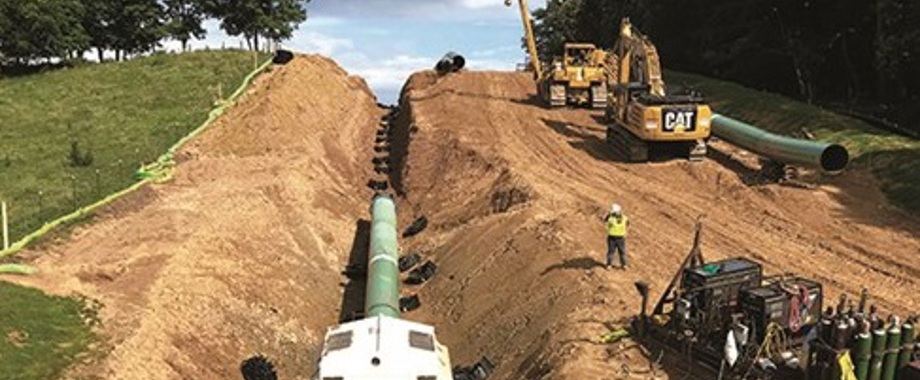
MVP Seeks FERC Approval for Capacity Boost on Appalachian Gas Pipeline
Mountain Valley Pipeline has filed a FERC application for its MVP Boost project, a 600 MMcf/d capacity expansion using new compression facilities in West Virginia and Virginia. The fully subscribed project targets a 2028 start-up.
(P&GJ) — Mountain Valley Pipeline, LLC (MVP) has filed an application with the Federal Energy Regulatory Commission (FERC) to expand capacity on its mainline system through the proposed “MVP Boost” project, which would add 600 MDth/d (about 600 MMcf/d) of natural gas transmission capacity across West Virginia and Virginia.
The project involves new compression facilities at three existing stations in West Virginia and construction of a new compressor station in Montgomery County, Virginia, adjacent to the current right-of-way. According to the company, the expansion will allow the system to transport up to 2.6 Bcf/d once complete.
All additional capacity under MVP Boost has been fully subscribed by investment-grade utilities in North Carolina and Virginia through long-term agreements.
“The Mountain Valley Pipeline is a proven, world-class asset that has provided American families and businesses with greater access to the low-cost, reliable and clean energy needed to power modern life,” said Toby Z. Rice, president and CEO of EQT Corporation, a major stakeholder in the joint venture. “The proposed MVP Boost project is an efficient, high-value expansion that will amplify the benefits of this critical energy infrastructure system to our nation's economy and national security.”
MVP said it increased the planned capacity from 500 MDth/d to 600 MDth/d after strong shipper interest during its June–July 2025 open season, which received more than 1 Bcf/d of requests.
Pending regulatory approval, construction is scheduled to begin in winter 2026–2027, with an in-service target of mid-2028. The project will use state-of-the-art compressor technology and existing FERC-approved workspaces to minimize environmental impacts.
An economic analysis by FTI Consulting estimates the project would generate $450 million in spending during construction, along with $127 million in tax revenue and about 200 temporary jobs across West Virginia and Virginia.
The 303-mile MVP mainline, which began operations in June 2024, currently transports 2 Bcf/d of natural gas from Wetzel County, West Virginia, to Pittsylvania County, Virginia.
